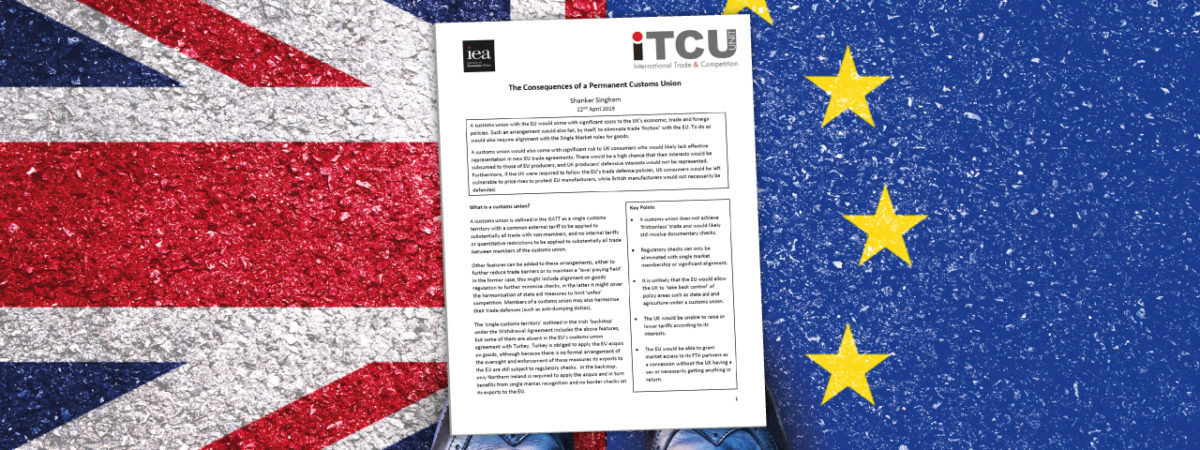A Load of Rubbish? Introducing a Deposit Return Scheme to the UK
SUGGESTED

Gender pay gap reporting produces another round of misleading statistics

IEA releases briefing on the reality of customs union membership

Introducing a Deposit Return Scheme to the UK
A UK-wide deposit return scheme (DRS) can be expected to increase recycling rates for beverage bottles and cans from 70-75 per cent to 85-90 per cent, but at a disproportionate cost.
A DRS is expected to cost over £1 billion in its first year and £814 million per annum thereafter. The tangible economic benefits are expected to be less than £100 million per year. In financial terms, a DRS would be highly inefficient, largely because kerbside collection already recovers 72 per cent of these containers.
The government’s impact assessment is only able to claim a net economic gain by including intangible benefits of £986 million per annum from a reduction in litter. This figure is highly questionable. The impact assessment neglects to include the much larger costs of unpaid labour that will be incurred by households having to collect, store and return empty containers. When the full costs and benefits are included in the analysis, there seems to be no economic case for a deposit return scheme.
Fullscreen Mode




